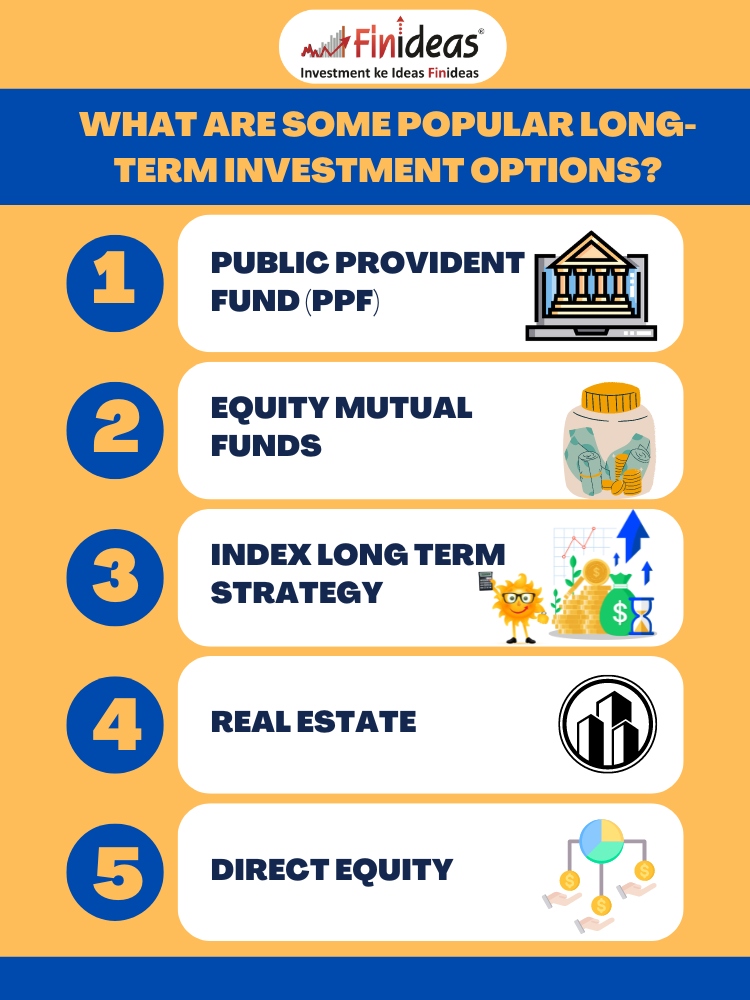The Power of Long-Term Investment and Compounding
Why is Long-Term Investment Important?
Long-term investment is a strategy where you hold onto assets for several years or even decades. This approach offers numerous benefits that can significantly impact your financial health and future, especially within the Indian financial context.
What Are the Benefits of Long-Term Investment?
- Lower Risk: Over extended periods, investments have more time to recover from market volatility. Indian markets, like any other, experience fluctuations. However, a long-term perspective allows investments to rebound from short-term downturns.
- Higher Returns: Historically, long-term investments have yielded higher returns compared to short-term trades. For example, the BSE Sensex has grown significantly over the past few decades, reflecting the potential for substantial gains.
- Tax Advantages: Long-term capital gains (LTCG) are taxed at a lower rate than short-term gains in India. For equities, LTCG above ₹1 lakh are taxed at 10%, which is favorable compared to short-term capital gains tax.
How Does Compounding Work?
Compounding is the process where the earnings on an investment are reinvested to generate additional earnings over time. This creates a snowball effect where your investment grows exponentially.
Can You Provide a Numerical Example of Compounding in Indian Rupees?
Let’s say you invest ₹1,00,000 at an annual interest rate of 8%.
- After 1 year, you will have ₹1,08,000.
- After 2 years, you will have ₹1,16,640 (₹1,08,000 * 1.08).
- After 10 years, your investment will grow to ₹2,15,892.
Over 30 years, this ₹1,00,000 investment would grow to ₹10,06,266, thanks to the power of compounding.
To further illustrate, consider a SIP (Systematic Investment Plan) where you invest ₹5,000 monthly in an equity mutual fund with an average annual return of 12%. After 20 years, you would have invested ₹12,00,000, but the power of compounding would grow your investment to approximately ₹49,44,000.
What Strategies Should You Use for Long-Term Investment?
- Diversification: Spread your investments across various asset classes like equities, mutual funds, fixed deposits, and real estate to reduce risk. Diversification ensures that the underperformance of one asset class does not drastically affect your overall portfolio.
- Consistent Contributions: Regularly add to your investments, regardless of market conditions. SIPs in mutual funds are a popular way to maintain discipline in investing and benefit from rupee cost averaging.
- Reinvestment: Reinvest dividends and interest to take full advantage of compounding. For instance, choosing growth options in mutual funds ensures that the returns are reinvested rather than paid out, maximizing the compounding effect.
- Stay Informed: Keep yourself updated with the latest financial news and market trends. This knowledge can help you make informed decisions and adjust your portfolio as needed.
How Can You Start Investing for the Long Term?
- Set Clear Goals: Determine what you want to achieve with your investments. Whether it’s buying a house, funding children’s education, or retirement planning, having clear goals helps in choosing the right investment avenues.
- Research and Choose Investments: Look for reliable and well-performing assets. In India, options like PPF (Public Provident Fund), EPF (Employee Provident Fund), NPS (National Pension System), and equity mutual funds are popular for long-term investments.
- Monitor and Adjust: Periodically review your investments and adjust as needed to stay on track. Market conditions and personal circumstances change, so it’s important to ensure your investment strategy remains aligned with your goals.
What Are Some Popular Long-Term Investment Options?
- Public Provident Fund (PPF): A government-backed savings scheme with tax benefits under Section 80C and a lock-in period of 15 years, making it a popular choice for conservative investors.
- Equity Mutual Funds: Ideal for those seeking higher returns and willing to take on more risk. Equity mutual funds have historically provided substantial returns over the long term.
- Index Long Term Strategy: A long term focused investment option that provides equity + Safety = Prosperity.
- Real Estate: Investing in property can yield significant returns through capital appreciation and rental income, though it requires substantial capital and due diligence.
- Direct Equity: Investing directly in stocks can be highly rewarding but requires careful analysis and a long-term perspective.
Conclusion: Why Should You Embrace Long-Term Investment and Compounding?
Long-term investment, coupled with the power of compounding, is a powerful strategy to build substantial wealth over time. By starting early and staying committed, you can secure a financially stable future. The key is to remain patient and disciplined, allowing your investments the time they need to grow.
So what are you waiting for? You must know about Index Long Term Strategy to achieve your financial goals.
What is one long-term investment goal you have, and how do you plan to achieve it?
Happy Investing!
This article is for education purpose only. Kindly consult with your financial advisor before doing any kind of investment..


